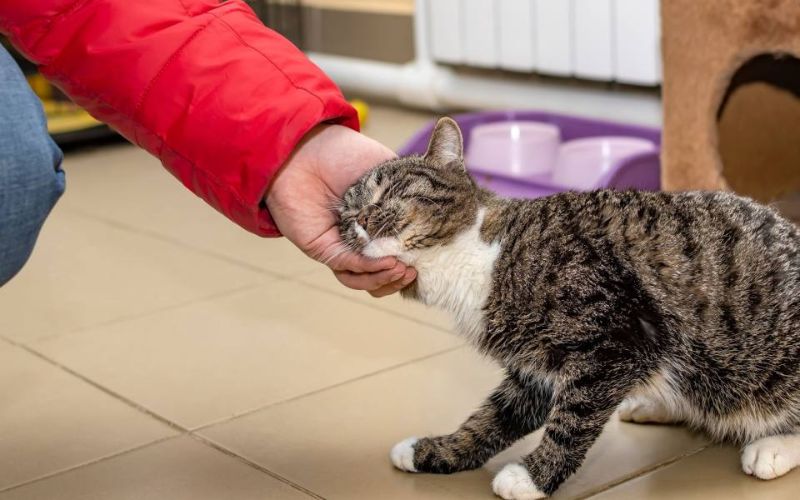Cats are mysterious creatures with strange quirks that can often confuse their human companions. These engaging actions also include head hitting, sometimes referred to as “head cracking” or “head pressing”. If you’ve ever suffered a minor blow to the head from your cat, you may have wondered why. For what purpose am I making these gestures? This article will discuss the reasons behind this endearing behavior and provide an analysis of why your cat may be head-butting you.
Why Does My Cat Headbutt Me?
Cats often head-butt each other, although this is a sign of trust and affection rather than aggression. Cats are believed to have been using this word since they were kittens to interact with their mother and siblings. Headbutts are said to be a way of communication and bonding between cats and humans.
Scientific Consensus on Headbutts
The cat’s body, especially the head, is covered with scent glands. These glands are responsible for secreting pheromones, chemical substances that play an important role in cat communication. Head biting is a form of affection in cats, but it is also a way for them to mark their territory by leaving their scent behind. When people do this, they make you feel welcome in their territory and feel like you belong there.
Plus, the endorphins released during headbutts make the cat feel good and fulfilled. So when your furry companion pats you on the head, it’s not just a friendly greeting; It is also an expression of gratitude for the opportunity to form a meaningful bond with you.
FAQs
Do only domestic cats do head butting?
Head chopping has been observed in both domestic and wild cats, so the answer is “no”. This often occurs in cat populations or colonies.
My cat head biting can range from somewhat annoying to downright violent. How worried should I be?
In most contexts, a gentle headbutt expresses affection. If you notice that your cat’s head injury is becoming more severe, it is important to keep an eye on her general behavior and consult a veterinarian. When coupled with other worrying behaviors, severe head shaking may indicate physical pain or illness.
After headbutting me, my cat often rubs her cheeks against mine. Why?
Some cats will rub their face against yours as a form of “scent marking” or “bunting” after a head bite. By depositing their scent (via scent glands on their cheeks), cats show their affection and ownership by rubbing their owners against them. Your bond with your cat will grow stronger as a result of playing like this.
Should I wait until my cat hits me head first, or can I go first?
It’s okay to initiate physical contact, such as a headbutt, if your cat appreciates them. If they come up to you casually and seem eager to start a conversation, tilt your head in their direction a little every now and then. Responses like headbutts and other signs of friendliness show that they are enjoying the bonding experience.
Is there an appropriate time to avoid a headbutt?
Cats will nod regularly as a sign of affection, even if they are not in the mood for physical contact at the time. If your cat is behaving aloof, anxious or withdrawn, try giving her some extra space to move around. Like humans, cats can be selective about when and to whom they show affection.
Conclusion
Cats can have a wide range of interactions and interactions with their human family members. Head butting is an adorable way for cats to show that they trust and adore each other. Understanding the science behind this behavior and being willing to accept your cat’s limits will help you develop a meaningful relationship with your feline friend. The next time your cat pats its head on you, remember the pure devotion it showed to you in that moment.
